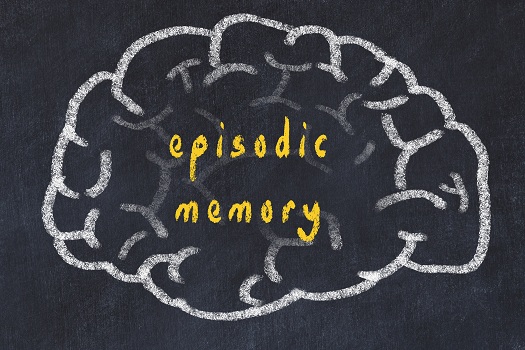As adults grow older, they experience changes in the areas of their brains that control their actions and how information is stored. Aging adults who have developed Alzheimer’s typically experience more severe learning and memory problems than other seniors. Continue reading to learn about the types of memory affected by Alzheimer’s disease.
Working Memory
Alzheimer’s causes frontal lobe dysfunction in older adults and prevents them from recalling vital information associated with daily activities and safety. When Alzheimer’s impacts the frontal lobes, seniors may have difficulty remembering important telephone numbers, putting their health in danger. Another safety issue is the disease’s effect on the ability to focus when doing tasks, including walking down stairs, bathing, cooking, cleaning, and working on arts and crafts. As a result, seniors are at higher risk for falling and harming themselves with tools and various devices in the home. It’s best for seniors with Alzheimer’s disease to avoid activities with multiple steps and complex directions and stick to one-step projects instead.
If your loved one has been diagnosed with Alzheimer’s, help is just a phone call away. There are many reasons seniors might need assistance at home. Some may require regular mental stimulation due to an Alzheimer’s diagnosis, while others might only need part-time assistance with exercise and basic household tasks. Home Care Assistance is a leading at-home care provider. Families rely on our expertly trained caregivers to help their senior loved ones maintain a high quality of life.
Episodic Memory
Recent events and past experiences make up the episodic memory. Some examples include remembering what was eaten for lunch earlier that day or a significant family celebration that took place a few weeks before. To recall these things, your parent must encode, consolidate, and retrieve memories. The regions of the brain that control episodic memory include the hippocampus and the surrounding temporal lobes. However, Alzheimer’s disease damages these brain structures, especially the hippocampus, which makes it difficult to remember events that took place that day or weeks or months before.
Aging adults who need help managing mental and physical health issues can benefit from the assistance of highly trained professional caregivers. Seniors who want to remain healthy as they age can benefit in a variety of ways when they receive professional elder care. Anchorage, AK, Home Care Assistance is here to help your loved one accomplish daily tasks, prevent illness, and focus on living a healthier and more fulfilling life.
Semantic Memory
Although the deficits associated with semantic memory are considered a hallmark of Alzheimer’s disease, the symptoms are often overshadowed by the cognitive problems related to episodic memory. When the condition impacts the semantic memory, seniors may have difficulty remembering factual information. For instance, your loved one may forget what a telephone is and how the device works. The memory issues associated with this type of cognitive impairment typically relate to familiar people, tasks, places, and objects. As Alzheimer’s disease progresses, it will damage your loved one’s temporal lobes and prevent him or her from remembering who people are.
Procedural Memory
Procedural memory allows seniors to remember skills, including those associated with activities they haven’t done in months or years. These memory problems are more noticeable during the middle stages of Alzheimer’s disease and can prevent your loved one from driving a car, riding a bike, and performing other activities that rely on short-term and long-term memory. Your loved one may experience increased confusion and agitation, and his or her ability to learn new things may decrease. To prevent depression and combative behavior, customize your loved one’s activities, making the tasks easier to complete.
Recovering from a stroke, managing the symptoms of Alzheimer’s, and a variety of other health-related situations can make it difficult for a senior to continue living at home without someone there to help. Anchorage, AK, live-in care professionals are trained to help seniors who need 24/7 assistance. With the help of a live-in caregiver, your elderly loved one can maintain a higher quality of life while aging in place. Trust your loved one’s care to the professionals at Home Care Assistance. Reach out to one of our compassionate Care Managers today at (907) 770-0907.
